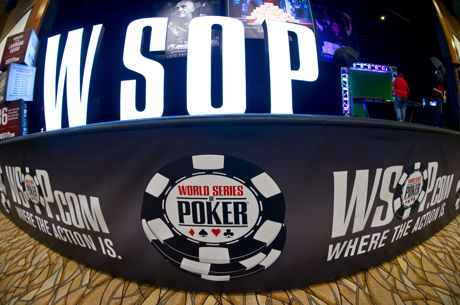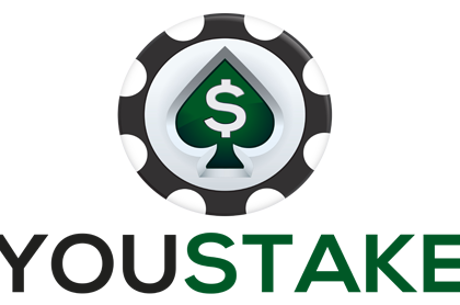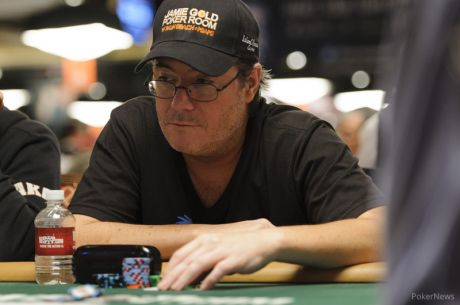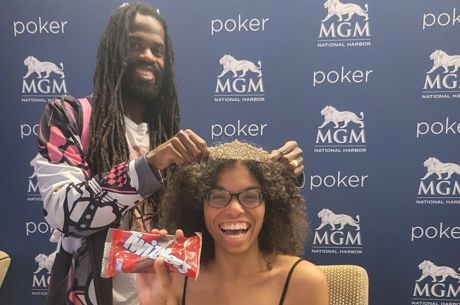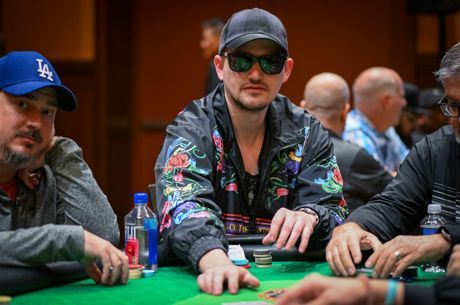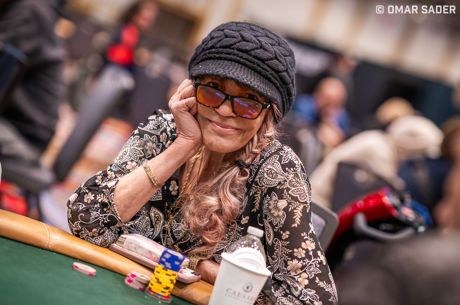Learn What's in Store for Greg Raymer During 2016 and More About YouStake
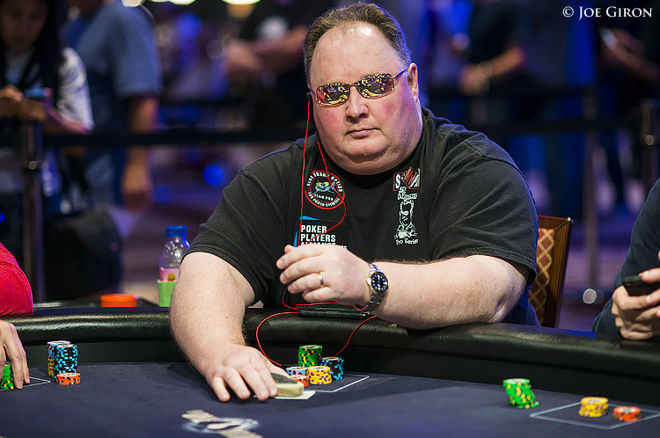
Greg "Fosssilman" Raymer likely needs no introduction to any poker fan. The 2004 World Series of Poker Main Event winner has remained active in the United States poker scene for more than a decade after his win, accumulating over $7.5 million in career live tournament winnings according to The Hendon Mob.
PokerNews recently covered that Raymer sold all of his 2016 action to the public, including the WSOP buy-ins, on the staking site YouStake. He put up $20,000 of his own money along with selling pieces of his stake privately as well.
Since then, we had the opportunity to discuss with Raymer in a PokerNews-exclusive interview about what he has been up to, his plans during the WSOP, and to learn a bit more about YouStake.
"I live in Raleigh, North Carolina, so I am not able to play day in and day out like some people and I travel to play," Raymer said. "I did take a trip to Chicagoland for the Heartland Poker Tour] events at the Ameristar Chicago in late January, but did not cash in that event. I did min-cash the Seniors Event, but that was $150 in profits, so no big deal. I played a little at the Horseshoe Hammond and later headed out to the HPT Colorado event at the Golden Gates Casino. That's what the last few years have been like. I am on the road a good bit, probably 40 percent of the year I'm not here in Raleigh."
The 51-year-old poker player explained his main two reasons for choosing which events to play.
"I go to events usually for one of two reasons," Raymer said. "Preferably I am there since I am already teaching one of my Fossilman Poker Training Seminars. Frequently, they open those with one of their bigger events, because from the poker room's point-of-view, my seminars are a marketing tool. This is something that gets some buzz and excitement going and extra players. We can generate a lot of free publicity because their marketing people can have me do a bunch of phone interviews before I get there.
"Other times the reason I choose this event over that event is that maybe a casino is willing to comp some of the expenses and buy-ins. Maybe they will not want to book the seminar, but they maybe will give me a free hotel or other expenses or maybe a buy-in to the tournament. So obviously I'd rather go somewhere that is paying for some or all instead of somewhere that isn't."
Raymer explained to us the main reason he sold his action on YouStake is his relationship with them. He also explained while that many people may not like the fees involved, they are a necessary part of doing business on the site.
"I have a relationship with YouStake, so why would I go somewhere else if I am working with them," Raymer said. "The system they are developing is going to be very beneficial. The only negative that people will ever be able to complain about is if they don't like the fees involved."
Raymer explained:
"For example, for my current stake for the year, I emailed people that worked with me before and they bought pieces with no fee. If they were contributing $1,000 to the bankroll, they had $1,000 in the bankroll. Whereas on YouStake, you would end up having to pay $1,050 for the same position because YouStake is going to keep the five percent fee. Part of that includes things like credit cards and other costs of moving the money back and forth, and obviously part of that is profit for the company. They have to pay their overhead and turn a profit. As things with moving money become more streamlined, hopefully the fees will be reduced."
However, this was not the only reason Raymer sold on YouStake since the site makes it easier for him to sell in lower amounts per investor than if he was just selling privately.
"An advantage to me selling on YouStake is the size," Raymer said. "When I am selling privately, I am selling in $1,000 units as I don't want to go through the hassle in collecting $20, $50, and $100 checks from hundreds of people. Whereas on YouStake, it's all handled for me so I can sell at much smaller numbers and not care that it is a large number of investors at small numbers. I don't have to keep track of who paid me and who didn't nor write out hundreds of checks at the end of the year to send money back to the investors."
Plus, there's a tax benefit. Selling pieces to players outside the U.S. can be tricky. It's a situation that a number of players, including Raymer himself, have found themselves in.
"Also, some of the investors might be from other parts of the world, so it might be that I am supposed to have filed paperwork to not violate foreign tax-law," Raymer said. "When I won the Main Event, I sold pieces to people in a deal very similar to this where people invested in $500 blocks. If someone bought one share, they would have received $36,000 and change. One of my investors was from Poland and he bought two shares. So, in his case I had to withhold 30 percent, send it to the IRS with his name on it, and sent him the rest. Then he could have potentially filed some kind of US tax return to get some of that 30 percent back. However, I wouldn't have to want to worry about that for dozens of countries, and I have no idea if I was supposed to do any type of paperwork for Polish tax purposes back in 2004."
The former WSOP Main Event champ also shared that having the chance to make money isn't the only reason why players invested in him. He believes that players wish to live vicariously through him and enjoy receiving many reports on how things went throughout the year.
"I write up rather detailed reports approximately once a month and a bit more often during the WSOP, which is part of the attraction, especially for the smaller investors that put up the $105 to get $100 in action," Raymer said. "These investors now get 12-15 of these several-page long reports where I am discussing key hands and not just results that I won or lost $X. I may discuss hands I shared on ShareMyPair website and app, so they can also enjoy that process, see the hand play out, and also post comments."
Raymer has seen first-hand that turning a profit isn't necessary for many investors.
"I have many people that have invested in me last year, and even though they lost money, they want to invest again," he said. "Part of it is that I still have confidence in you and trust you and the other part is that they may really enjoy getting those emails every few weeks and living vicariously through you as if I am going to play in those big tournaments all over the country."
Raymer also explained that the fees involved on YouStake add security for investors. While Raymer himself has a good reputation in the poker world, this may open up backers to potentially invest in players that haven't yet built up the same level of trust as the former WSOP Main Event champ.
"While you are paying the fee, you also avoid a lot of problems that can occur on the stake," Raymer said. "Theoretically, if I am just texting a bunch of friends, I could be collecting more than the buy-in and then just making sure I don't cash. People can check up on me to make sure I played the tournament, but if I am doing it all privately, how do they know I am not selling 500 percent of myself, making sure I don't cash, and pocketing the difference. So there are all kinds of things that could potentially be going on."
"But with the YouStake model, the amount of trust required is really minimal," Raymer continued. "The player is never going to have the opportunity to do that kind of thing. I guess they can sell on YouStake and sell privately hoping that no one notices. But there, the problem would be is if I am selling privately on the side, then you might find my YouStake listing and say, 'What the hell is this, the YouStake people bought up most of your action, you didn't have enough left to sell me 20 percent.' So they are a lot more likely to get caught if they try to do something like that."
Raymer followed this up by explaining that with YouStake it isn't possible for players to just steal money and not play an event. He explained that the staking site is working on relationships with the biggest poker rooms in the U.S. to handle things electronically and where this isn't currently possible, the company has representatives on the ground to assure things run smoothly.
"Let's say you are selling 80 percent of your action at a 1.25 mark-up," Raymer said That means your backers will be putting up all the money, and you'll be putting up none. So if this is the WSOP Main Event, your investors have put up $10,000, and now you are playing for 20 percent of whatever money you make. What's stopping you from just taking the $10,000 and not even entering the tournament?"
Not possible with YouStake involved.
"Well, with YouStake, you would never touch the $10,000," Raymer said. "They would now move the money to the Rio with your name attached to it and indicate that this is for Event #65, the Main Event. Now, that person is going to have to go to the cage, show their ID, but they won't have to officially register. The money is transferred from a YouStake holdings account to the Rio itself."
Even the cashing out process will be handled by YouStake.
"The way its going to work in the long run hopefully everywhere is that if they make the money, when they go to cash out, the computer system is going to say it's a YouStake player and he only gets 20 percent," Raymer said. "So if he cashed for $100,000, the cage is only going to give him $20,000. And the appropriate paperwork will indicate for the tax purposes that he only received $20,000. Then the other $80,000 is going to be sent to YouStake to distribute to all of the investors, and YouStake will issue any necessary tax paperwork as well."
Raymer explained how YouStake currently operates when they haven't yet established a relationship with a poker room.
"Last summer when players were offering stakes on YouStake, they didn't have the relationship yet with the Rio," Raymer began. "So they had people on the ground and an actual human being there. So in a case like this where a guy sold all $10,000 of his Main Event action, he would arrange through email and text to meet at the cage at a specific time. The YouStake rep would go to the window with him. He would furnish his player card and his ID, tell the cashier he wants to register for the Main Event, and the YouStake rep would hand the money to the cashier. So even then, he didn't touch the money."
As Raymer shared, the process is safe and smooth for the investors as well if a player cashes in a tournament that they put money into.
"On the back end, when that person would go and cash out, a YouStake rep was there," Raymer said. "If this guy did something like take the whole $100,000 and not hand over the $80,000 to redistribute to all of the YouStake investors, they are now in a position to immediately do something about it like call security or call the police. They know the guy's identity and got it all on film because they are in the cashier's section with the security cameras rolling. So they would have been in a position to get that money back."
However, due to the extra security that YouStake provides, poker players are unable to put up stakes on the site for any tournaments they want.
"You can't go on YouStake to put up for any tournament you want if YouStake isn't going to have anyone there," Raymer explained. "So unless they have already built the relationship with that property, where they can do things electronically, then it's not going to be possible."
That being said, Raymer explained that developing relationships with casinos is a top priority for YouStake.
"One of the most active things keeping the YouStake employees busy is working with all of the poker rooms around the country starting with the bigger ones that have more tournaments and moving down the list to try to convince them that this worthwhile despite a little effort maybe to get things in place," Raymer said. "Obviously the gaming commission is going to want to be involved to check things out and give approvals. The advantage in the long term for that room is going to be bigger numbers in their tournaments because players will be more likely to play in an event."
As one might expect, Raymer plans to be active during the upcoming 2016 WSOP. He explained one of the main attractions to him are games outside the popular no-limit hold'em variant.
"I live the World Series since I am a big fan of all of the other games," said Raymer. "No-limit hold'em is a really good tournament game, but I don't think it's that great of a cash game. To be honest in cash games I think limit hold'em is probably a better game. What I really love for cash games is all of the other stuff such as draw games and stud games. For the most part I think a lot of those games play better as limit."
Tournaments, however, are another story.
"But, unfortunately in a tournament, no matter how good the game is such as some of my favorites in triple draw and badugi, limit tournaments are just really tough because no matter how good the structure when you get deep in the tournament no one has that many chips," Raymer said. "The average stack in terms of the number of big blinds is way lower in a limit tournament than a no-limit tournament. This means there is a lot more variance and short-term luck. So, I love no-limit hold'em as a tournament game, but I love the other games so much more that I relish the opportunity to play them."
That said, the game that made Raymer famous still gets a good chunk of his attention at the WSOP.
"I play a lot of the hold'em since there is still so much value there especially in the lower buy-ins. But even if my bankroll was significantly large I wouldn't be inclined to play in a $25,000 six-max because even if you are the best player in the field you edge is still fairly small."
Want to stay atop all the latest in the poker world? If so, make sure to get PokerNews updates on your social media outlets. Follow us on Twitter and find us on both Facebook and Google+!

